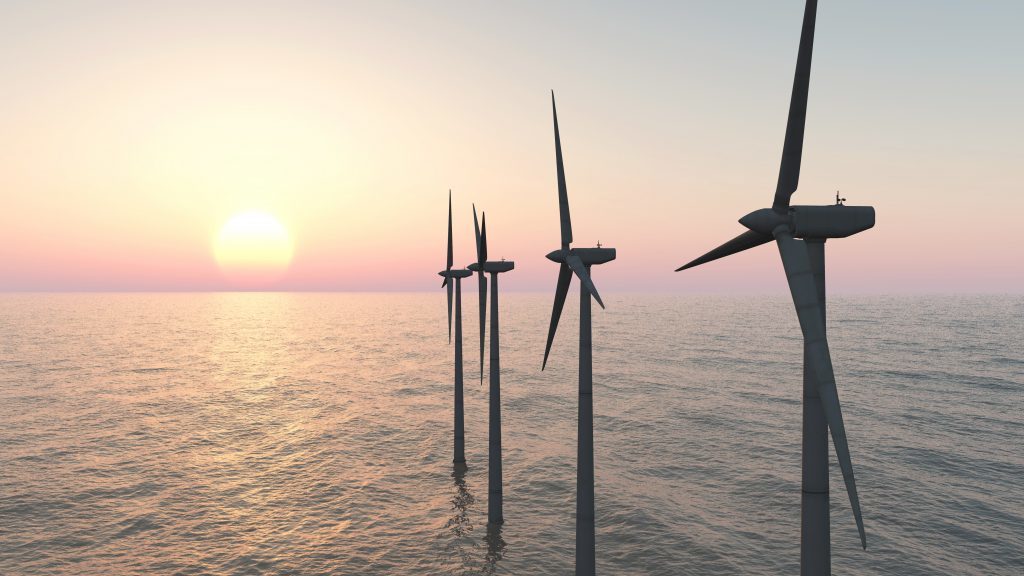
A leading union has accused the Scottish Government of being “deliberately misleading” after it indicated that Westminster was to blame for supply chain firms north of the border missing out on offshore wind contracts.
Holyrood published its long-awaited Offshore Wind Policy Statement yesterday, setting out plans for the country to achieve 11 gigawatts (GW) of installed offshore wind capacity by the end of the decade, enough to power around eight million homes.
It also officially confirmed plans first set out in January to introduce commitments for developers to lay out potential contract opportunities for domestic companies, with “contractual consequences” for those that failed to comply.
According to the Scottish Government, Crown Estate Scotland is currently considering “potential consequences”, including the “potential termination of option agreements.”
In the run up to the inaugural ScotWind leasing round in June, industry experts voiced concerns that without contractual obligations, developers may continue to overlook Scotland’s supply chain.
Workers and unions were left reeling last month after work for SSE Renewables’ major Seagreen offshore wind development off the coast of Angus went overseas rather than to Fife-based Burntisland Fabrications (BiFab).
That was closely followed by Holyrood deciding to pull financial support for the firm, which BiFab owner DF Barnes has said will make winning the contract for eight turbine jackets on the NnG wind farm project off the Fife coast “very challenging”.
The Scottish Government said in its policy statement that price pressures arising from the UK Government’s Contracts for Difference (CfD) scheme, which is a reserved issue, has led to fabrication contracts being issued to yards overseas.
It also said that ministers would be pushing for reform on the matter so that it places a “greater emphasis on the quality of bids”, rather than “exclusively on cost”.
But, Pat Rafferty, Unite union’s Scottish Secretary, argued there were “many levers” that the Scottish Government could pull.
He said: “The Scottish Government’s latest Offshore Wind Policy statement is an unfortunate phrase because that’s all we have substantively had from them – hot air. Unite fully appreciates that the Contracts for Difference process is a reserved issue but as we have repeatedly pointed out there are many levers at the Scottish Government’s disposal so to simply blame the lack of outcomes on this is deliberately misleading and disingenuous.
“The onshore and offshore wind sector in Scotland is on life support. We have the BiFab yards and CS Wind in Campbeltown sitting idle. There is no irony lost that this latest statement by the Scottish Government comes as they have just walked away from the BiFab yards. It is hollow and blames everyone but themselves for this national disgrace.”
A Scottish Government spokesperson said: “Any company wishing to apply through ScotWind, managed by Crown Estate Scotland, will have to submit a Supply Chain Development Statement setting out how they will help grow the supply chain.
“The Supply Chain Development Statement requires developers to outline the anticipated level and location of supply chain impact from any proposed project, broken down by project stage and the geographical location of supply chain activity.
“It will form part of the initial application for seabed rights and will be shared with the Scottish Government, public sector partners and enterprise agencies.
“After consultation with Scottish Ministers, Crown Estate Scotland has confirmed that it is considering what potential consequences will be established for non-compliance with the commitments laid out in an applicant’s statement, including the potential termination of option agreements.”
Nick Sharpe, director of communications and strategy at Scottish Renewables, said: “Industry was made aware in January that the ScotWind Leasing process would contain an obligation to provide regularly-updated Supply Chain Development Statements.
“Offshore wind developers are working hard to providing Scottish companies with the opportunities they need to invest and succeed in our growing offshore wind sector, and a number of projects are currently underway to that end, including through the Scottish Offshore Wind Energy Council.
“Truly collaborative Supply Chain Development Statements are a way to bring certainty into the complex development processes which take place when building these multi-billion-pound projects. We look forward to working with the Scottish Government on barriers to deployment – for instance shortening consenting periods – which hamper that supply chain certainty as we seek to capture the economic and environmental potential of energy from our seas.”
Register for free to join Energy Voice’s virtual Energy Transition Idea Exchange (ETIDEX) summit on November 19 here.
Recommended for you

